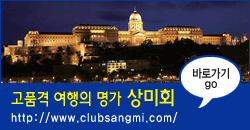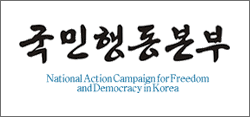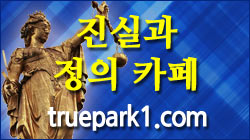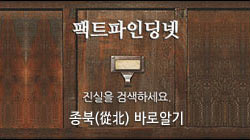by Kim Pyung-woo (Attorney and former head of Korean Bar Association)
In May of 2005, the Constitutional Court said in its ruling over then president Roh Moo-hyun's impeachment bill that the rationale for impeachment was relevant to a violation of the Constitution and the law and reached the following conclusion.
“(Roh’s charge of illegal electioneering) was not serious or grave enough to justify the unseating of the president,” court president Yun Young-chul said in a ruling, reinstating Roh.
The Constitutional Court announced the principle of gravity. And the court ruled in favor of Roh based on that principle. A look at the National Assembly's rationale for impeaching Park suggests all of the charges made against her are grave violations of the Constitution and the law. Is that really the case?
First, let's take a look at the alleged violations of the Constitution. As observed earlier, Park did not deny or attack any system, principle or ideology stated in our Constitution. Rather, the exact opposite is true. Park took steps to disband the far left-wing Unified Progressive Party, which refused to accept the Constitution of the Republic of Korea and won a court order authorizing the move. She also took steps to draw up a set of school history texts that sought to rectify biased books that denied the legitimacy of the Republic of Korea. Moreover, she took the left-wing Korean Teachers and Educational Workers' Union to court for teaching biased ideological views to children and had its members lose union status. Park also authorized the deployment of U.S. Terminal High-Altitude Area Defense batteries on the Korean peninsula, in order to thwart a North Korean nuclear or missile provocation.
The president has dedicated herself to defending the legitimacy of the Republic of Korea and to uphold constitutional order. Yet the National Assembly is seeking to impeach her by accusing her of violating the entire Constitution and behaving like North Korean dictator Kim Jong-un. As a result, the impeachment bill not only lacks gravity, but even the minimal requirements.
Let us look at the legal violations of bribery, coercion and abuse of power stated in the impeachment bill. As seen earlier, the National Assembly dismissed Park as a corrupt leader who received W77 billion in bribes and got involved in business interests amounting to W1.5 billion. Yet the president did not receive a single penny. The entire W77 billion was received by a non-profit foundation and still possesses that money. Park established the foundations in order to promote the public's interests and asked private businesses to donate money. This is in line with the quasi-tax-related conduct displayed by all past presidents at least once.
The W1.5 billion that the National Assembly and state prosecutors deemed as payment for business concessions, did not go into Park's pockets. Her longtime confidante Choi Soon-sil and her businesses received the money. And the money was not given for free. It was a payment for a legitimate commercial service. When compared to scandals involving close confidantes or family members of past presidents, the money they received were not the result of legitimate commercial transactions. They were received as bribes in return for giving concessions to certain businesses. As a result, the two cases are different from a legal standpoint. Scandals involving the confidantes of former presidents centered on illicit money received as bribes, but the money Choi received were profits from legitimate commercial services that were offered. As a result, no illegal acts were committed. The only problem is that a request was made to the president to create an opportunity for a business deal and that Park obliged and instructed her secretary to do that.
It does not befit the status of the president to create a business opportunity for a friend. But there is no regulation or legal precedent to find that as a violation of the law. The claim that a crime has been committed is a unilateral opinion voiced by prosecutors and the National Assembly. Even if Park's actions deserve moral criticism, they are not illegal and do not constitute grounds for impeachment. And her actions were not so unethical as to prevent her from conducting state affairs.
Let us ask ourselves an honest question. How many government officials and public servants in our country never asked a private business to hire a family member or friend or to see if any projects could be given to them? One of the key activities of lawmakers in particular is to turn to businesses to seek jobs and contracts to be awarded to residents living in their constituencies. Yet their acts are not considered abuse of power or coercion, while Park's conduct is an unforgiveable offense. Our lawmakers should be ashamed of themselves.
Who is our president? She is the least tainted president in the history of the Republic of Korea when it comes to scandals involving her confidantes. She has no family and no close friends or associates. She also lives a frugal life. And 51.6 percent of voters supported such a candidate and elected her as president back in 2012. She was the first leader to enforce the 'Kim Young-ran' anti-graft law, aiming to upgrade the Republic of Korea by prohibiting improper solicitations and illegal giving of money or goods and services. But if such a president ends up suffering impeachment after being labeled as a symbol of corruption simply for requesting employment and business projects for her friends, I have no choice but to question the future of this country.
And finally, let's take a look at the charge of leaking confidential documents. Park has been charged with leaking 47 confidential Cheong WaDae documents to Choi during three of her five years in office. On the surface, this sounds like a major offense. But the contents of the documents were far from being sensitive state secrets. Rather, they were trivial matters, such as the selection of the location of a regional sports facility. Accusing the president of leaking confidential state secrets by using such examples is like treating her like the mayor of a small city.
It angers me to see how the leader of our nation, the supreme commander of our 600,000-strong military and head of the legislative, judicial and administrative powers of government be treated this way. What kind of country are we living in? Let's assume that President Park Geun-hye erred by letting her friend know about a job notice in a neighborhood newsletter in order to help a friend and had her secretary deliver that information to her. So what damage did our nation suffer as a result? If this constitutes rationale to impeach our president, then the Republic of Korea has no need for one. How long could a country last without a president? In the end, the rationale for impeaching Park fails to meet the requirement of gravity.
Dec. 30, 2016
헌법재판소는 2004년 5월, 노무현 대통령에 대한 탄핵재판 판결에서 탄핵사유가 헌법위반이나 법률위반에 해당한다고 하면서 다음과 같은 요지의 판단을 내렸다.
<파면 결정을 통하여 손상된 헌법질서를 다시 회복하는 것이 요청될 정도로 대통령의 法위반 행위가 헌법수호의 관점에서 중대한 의미를 가져야 하고 대통령에게 부여한 국민의 신임을 임기 중 다시 박탈해야 할 정도로 대통령이 法위반 행위를 통하여 국민의 신임을 저버린 경우여야 한다.>
憲裁가 소위 ‘중대성’의 원칙을 선언한 것이다. 憲裁는 이 원칙을 적용하여 노무현 대통령에 대한 국회의 탄핵소추를 기각하였다. 국회가 박근혜 대통령의 탄핵소추장에 적시한 탄핵사유들을 보면, 朴 대통령의 혐의가 모두 중대한 헌법위반·법률위반이므로 위 중대성의 원칙을 충족시킨다고 주장하고 있다. 과연 그런가?
먼저 헌법위반 행위 소추 부분부터 본다. 앞서 헌법위반 행위에서 보았듯이 朴 대통령은 우리 헌법의 어떤 제도·원칙·이념 등을 부정하거나 공격한 적이 없다. 오히려 정반대이다. 朴 대통령은 우리나라의 자유민주주의 헌정질서를 부정하는 통진당을 해산청구하여 헌법재판소로부터 해산판결을 받아냈다. 대한민국의 정통성을 부정하는 國史 교과서를 재정비하기 위해 國定(국정) 교과서 제도를 부활시켰다. 더 나이가 어린 청소년들에게 그릇된 이념교육을 시행하여 대한민국의 정통성을 뿌리부터 흔드는 전교조의 法外(법외)노조 판단을 받아냈다. 朴 대통령은 북한의 核위협에 맞서 사드(THAAD)를 배치하여 국방도 튼튼히 하였다.
朴 대통령은 임기 시작부터 일관되게 대한민국의 정통성과 헌정질서를 수호하기 위해 자신의 몸을 던져 직무를 수행한 대한민국 헌법의 수호자이다. 그런데 국회는 朴 대통령을 대한민국의 헌정질서 전체를 다 위반하고 파괴한 마치 김정은 같은 독재자로 몰아 파면을 요청하고 있다. 결국 朴 대통령에 대한 탄핵소추는 탄핵의 중대성은커녕 최소성도 갖추지 못했다.
朴 대통령의 탄핵소추장에 적시된 법률위반 행위 중 뇌물죄, 강요죄, 직권남용죄 관련 소추를 본다. 앞서 보았듯이 국회는 朴 대통령이 770억 원의 뇌물을 받고, 15억 원의 이권에 개입하여 致富(치부)한 부패한 대통령으로 단정했다. 그러나 朴 대통령은 단돈 한 푼 이득을 취한 게 없다. 770억 원은 모두 公益(공익)법인에서 받아 보관하고 있다. 朴 대통령은 국가이익을 위하여 公益법인을 창설하고, 기업체들에 出捐(출연)을 요청한 것이다. 역대 대통령 재임 중 거의 한 번씩 있었던 準租稅(준조세) 행위의 관례에 따른 것이다.
(국회와 검찰 등이) 利權(이권)의 명목으로 본 15억 원도 朴 대통령이 이득을 취한 게 아니다. 최순실과 그의 회사가 이득을 본 것이다. 그렇다고 그냥 이득을 본 것도 아니다. 기업들과 적법한 商(상)거래를 하여 얻은 거래수익이다. 과거 정권의 대통령 측근 및 친인척 비리와 비교했을 때 그들이 받은 돈은 모두 적법한 商거래가 아니었다. 기업체에 부정한 이권을 주고 공짜, 즉 뇌물로 받은 돈이었다. 따라서 兩者(양자)는 적법성 면에서 차원이 다르다. 역대 대통령의 측근비리는 불법한 뇌물이었지만 최순실의 수익은 적법한 상거래의 수익이란 뜻이다. 따라서 불법성이 없다. 단지 朴 대통령에게 商거래의 기회를 만들어 달라고 부탁하고, 朴 대통령이 그 부탁을 듣고 비서에게 지시한 것뿐이다.
대통령이 사사롭게 친구를 위해 상거래를 만들어 주는 게 대통령으로서 품위 있는 일은 아니다. 그러나 법적으로 불법하다고 단정할 아무런 法규정도 판례도 없다. 범죄라는 주장은, 순전히 검사와 국회의 자의적인 의견이고 고발이다. 설사 도덕적으로 비난 받을 일이라 하더라도 불법이 아니므로 파면할 수 없다. 대통령이 국정을 수행할 수 없을 정도의 부도덕한 행위도 아니다.
우리 모두 가슴에 손을 얹고 생각해보자. 대한민국 공무원 중에서 가족이나 친지, 친구를 위하여 기업체에 일자리나 일거리 부탁을 하지 않은 사람 있나? 특히 국회의원들은 친지뿐 아니라 선거구민들을 위해 기업체에 일자리, 일거리를 부탁하는 게 일상의 업무 아닌가? 그런데 자기네들이 일상으로 하는 건 직권남용, 강요가 아니고 朴 대통령이 평생의 친구를 위해 일거리나 일자리를 부탁한 건 용서받지 못할 범죄라서 파면되어야 한다고? 우리나라 국회의원들은 너무 뻔뻔하다.
朴 대통령이 누구인가? 朴 대통령은 대한민국 역사에서 가장 측근비리가 없는 깨끗한 대통령이다. 朴 대통령은 믿고 의지할 가족이 없고, 친구도 없고, 동지도 없다. 생활도 검약하다. 국민들은 그런 깨끗한 朴 대통령이 좋아서 2012년 大選에서 51.6%의 지지를 보냈다. 朴 대통령은 대한민국 역사상 처음으로 김영란法을 시행하여 대가성이 있는 선물 및 촌지를 받지 못하도록 조치하여 대한민국을 업그레이드 시키려 노력한 대통령이다. 그런 朴 대통령이 친구의 일자리, 일거리 부탁한 罪로 부정부패의 化身(화신)으로 몰려 파면되는 수모를 겪는다면, 과연 이 나라에 正義가 있는 것인가 묻지 않을 수 없다.
끝으로 공무상 비밀누설죄 소추 부분을 본다. 朴 대통령이 임기 3년 동안 47건의 對外秘(대외비) 문서를 최순실에게 보내 공무상 비밀을 누설했다는 것이다. 얼핏 들으면 무슨 큰 罪같이 들린다. 그러나 문서의 내용이 국가 안보나 외교비밀이라면 모를까, ‘수도권 지역 체육시설입지 선정’ 같은 지역생활 정보를 가지고 대통령에게 공무상 비밀 누설 운운하는 것은, 국회가 대통령을 무슨 지방 시청의 主事(주사) 정도로 취급하는 것이다.
대한민국의 대표이고, 60만 국군의 최고 통수권자이며, 3部의 수장인 대통령을 이렇게 취급하다니 국민의 한 사람으로서 義憤(의분)을 느낀다. 세상에 이런 나라도 있나? 그래, 대통령이 친구의 편의를 봐주기 위해 지역생활 정보를 친구에게 알려주라고 비서에게 지시한 게 잘못이라고 하자. 그래서 국가에 무슨 피해가 생겼단 말인가? 이런 것이 대통령 탄핵사유가 된다면 대한민국 대통령은 존재할 가치가 없다. 대통령 없는 나라가 과연 얼마 동안 존재할 수 있을까? 결국 朴 대통령 탄핵사유들은 어느 것 하나 중대성의 요건을 갖추지 못했다.
2016. 12. 30. 金平祐












 Kim Pyung-woo
Kim Pyung-woo








 트위터
트위터 페이스북
페이스북 네이버
네이버




























